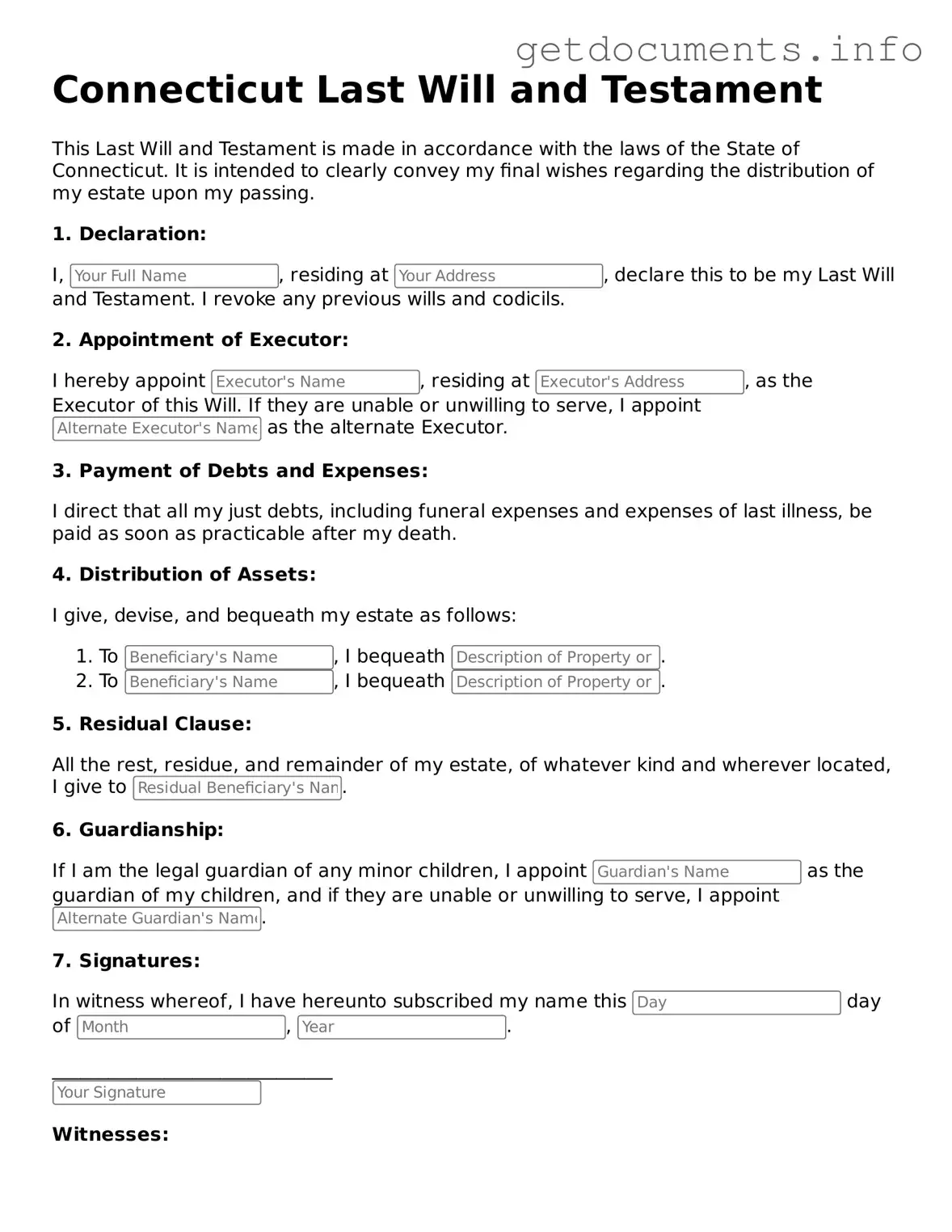Free Last Will and Testament Template for Connecticut
A Last Will and Testament is a legal document that outlines how a person's assets and affairs should be handled after their death. In Connecticut, this form serves to ensure that an individual's wishes are honored regarding the distribution of their property and the care of any dependents. Understanding this essential document can help you make informed decisions about your estate planning.
Ready to take the next step? Fill out the form by clicking the button below.
Access Last Will and Testament Editor

Free Last Will and Testament Template for Connecticut
Access Last Will and Testament Editor
Got places to be? Complete the form fast
Fill out Last Will and Testament online and avoid printing or scanning.
Access Last Will and Testament Editor
or
⇩ PDF File
